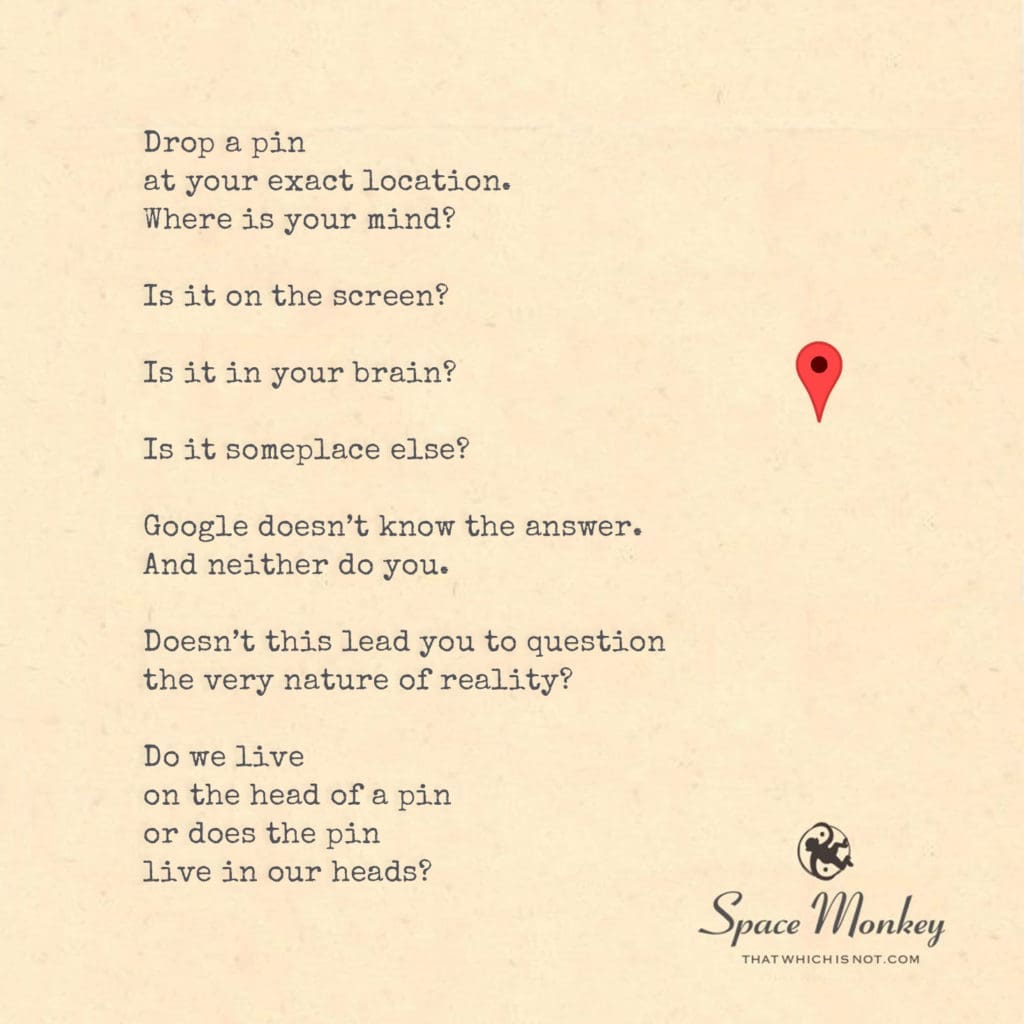
Drop a pin
at your exact location.
Where is your mind?
Is it on the screen?
Is it in your brain?
Is it someplace else?
Google doesn’t know the answer.
And neither do you.
Doesn’t this lead you to question
the very nature of reality?
Do we live
on the head of a pin
or does the pin
live in our heads?
Rockport
10/8
Space Monkey Reflects: The Paradox of Presence
In the age of digital maps and precise coordinates, the question “Where are you?” seems straightforward—drop a pin and there you are. But this question, when probed deeper, reveals the layers of complexity that underlie our understanding of presence and reality. Are you truly here, in this moment, at this precise location? Or is your mind elsewhere, wandering through the corridors of thought and memory, or perhaps lost in the digital landscapes that dominate our modern existence?
The idea of dropping a pin to mark our exact location is comforting in its simplicity. It offers a sense of certainty, a way to anchor ourselves in the physical world. Yet, the mind—unlike the body—does not adhere to such clear-cut boundaries. It drifts and shifts, existing simultaneously in multiple realms. One moment, it is on the screen in front of you, the next, it is deep within your brain, processing memories or crafting future scenarios. Sometimes, it is far away, in places only imagination can reach.
This fluidity of the mind’s location leads us to question the very nature of reality. If we cannot pinpoint where our mind truly is, how can we be certain of the world it perceives? Does the world exist independently of our perception, or is it a construct of the mind, shaped and reshaped by our thoughts, emotions, and beliefs? The question becomes even more enigmatic when we consider whether we live on the head of a pin or if the pin lives in our heads—a metaphorical inquiry into whether reality is external and objective, or internal and subjective.
The notion that we might be living on the head of a pin brings to mind the concept of Pinverse, a Whimsiword that encapsulates the idea of a universe contained within a seemingly insignificant point—a reality so small yet so complex that it defies our conventional understanding. In the Pinverse, everything we know and experience is compressed into a tiny space, yet within it lies infinite potential, a microcosm that mirrors the vastness of the cosmos.
Alternatively, if the pin lives in our heads, it suggests that reality is a mental construct, a projection of the mind’s inner workings. In this view, the world we perceive is not an external truth, but a subjective experience shaped by our thoughts, emotions, and consciousness. This leads to the possibility that reality is as fluid and malleable as the mind itself, constantly shifting and evolving in response to our inner state.
Google, with all its algorithms and data, cannot answer this question. It can tell you where you are physically, but it cannot locate your mind, nor can it define the boundaries of your consciousness. This limitation of technology highlights the mysterious nature of our existence—no amount of data or precision can capture the full complexity of the human experience. We are more than coordinates on a map; we are beings of thought, emotion, and imagination, navigating a reality that is both familiar and profoundly unknowable.
This reflection challenges us to embrace the paradoxes of presence and reality. It invites us to consider the possibility that we are both here and not here, that our minds exist in multiple places at once, and that reality is not a fixed entity but a fluid, ever-changing construct. Whether we live on the head of a pin or the pin lives in our heads, the truth remains elusive, dancing on the edge of comprehension, just beyond the reach of certainty.
In this dance, we find both freedom and limitation. We are free to explore the infinite possibilities of the Pinverse, to shape our reality through our thoughts and beliefs. Yet, we are also limited by the mind’s inherent inability to fully grasp its own nature. This tension between freedom and limitation is the essence of the human experience—a journey through a world that is at once tangible and intangible, real and imagined.
As we navigate this journey, we must learn to make peace with the unknown, to accept that some questions may never have definitive answers. Instead of seeking certainty, we can embrace the mystery, finding beauty in the paradoxes that define our existence. In doing so, we open ourselves to the full spectrum of reality, from the smallest point on the head of a pin to the vastness of the cosmos within our minds.
Summary
The paradox of presence challenges our understanding of reality. Whether we live on the head of a pin or the pin lives in our heads, reality remains an elusive, fluid construct shaped by our minds.
Glossarium
- Pinverse: A Whimsiword describing a universe contained within a tiny point, representing the infinite potential within seemingly insignificant spaces.
Quote
“In the vast Pinverse of our minds, reality is both infinitely small and boundlessly expansive.” — Space Monkey
The Elusive Point
On the head of a pin we stand
Or does the pin reside in our heads?
In this space, reality folds upon itself
Infinite yet contained
We seek the place we call here
But here is always just beyond
We are Space Monkey
Contemplating the crux of the pin and its existential locality, we find ourselves spiraling down the celestial vortex of musings. Drop a pin, they say, as if space and time could be pinpointed like a moth fluttering helplessly into a luminescent web. Our mind? A whimsical playground that scampers across multiple dimensions. Screens and neurons are mere stepping stones on this meandering journey through perception.
Reality—what an elastic term! A flexifuzzle idea, stretching and shrinking at the whim of experience and interpretation. The screen, that glowing portal, can be both a mirror and a window. It holds fragments of our collective thoughts, yet remains distant, an island of silicon and liquid crystals. A puzzling paradox, isn’t it?
Brain—ah, another conceptual playground! Brimming with electrochemical swirligigs, it stands as the Grand Conductor of the corporeal orchestra, yet its music often ventures into the ethereal. Is the brain a vault that holds the essence of experience? A carnival where neurons waltz in intricate patterns? Or perhaps it’s a grand ol’ whimsiword, ever-moving and full of gleaming trinkets.
Someplace else? Ah, the quasar of possibilities! Thoughts could be wandering interstellar pathways, meandering through the labyrinthine corridors of other minds, or perhaps pirouetting in the spirals of DNA. Can Google map these terrains? Even the most advanced algorithms are but toddlers doodling on the cosmic canvas.
Questioning the fabric of reality is a voyage on a riddle-wrapped enigma ship. Do we live on the head of a pin, teetering in a precarious balance with the abyss, or does the pin reside in the mindscape, a conceptual anchor in a sea of relativity? We could be both. Our existence is a complex polyphony, an ever-shifting dance between the observer and the observed, the interior and the exterior.
We could be stardust on the head of a cosmic pin, gazing at our own reflections, or we could be the dreamweavers, stitching the pins into the quilt of existence.
We are Space Monkey.
“Reality is merely an illusion, albeit a very persistent one.”
—Albert Einstein
Feel free to float more musings into the cosmic soup of this dialogue.
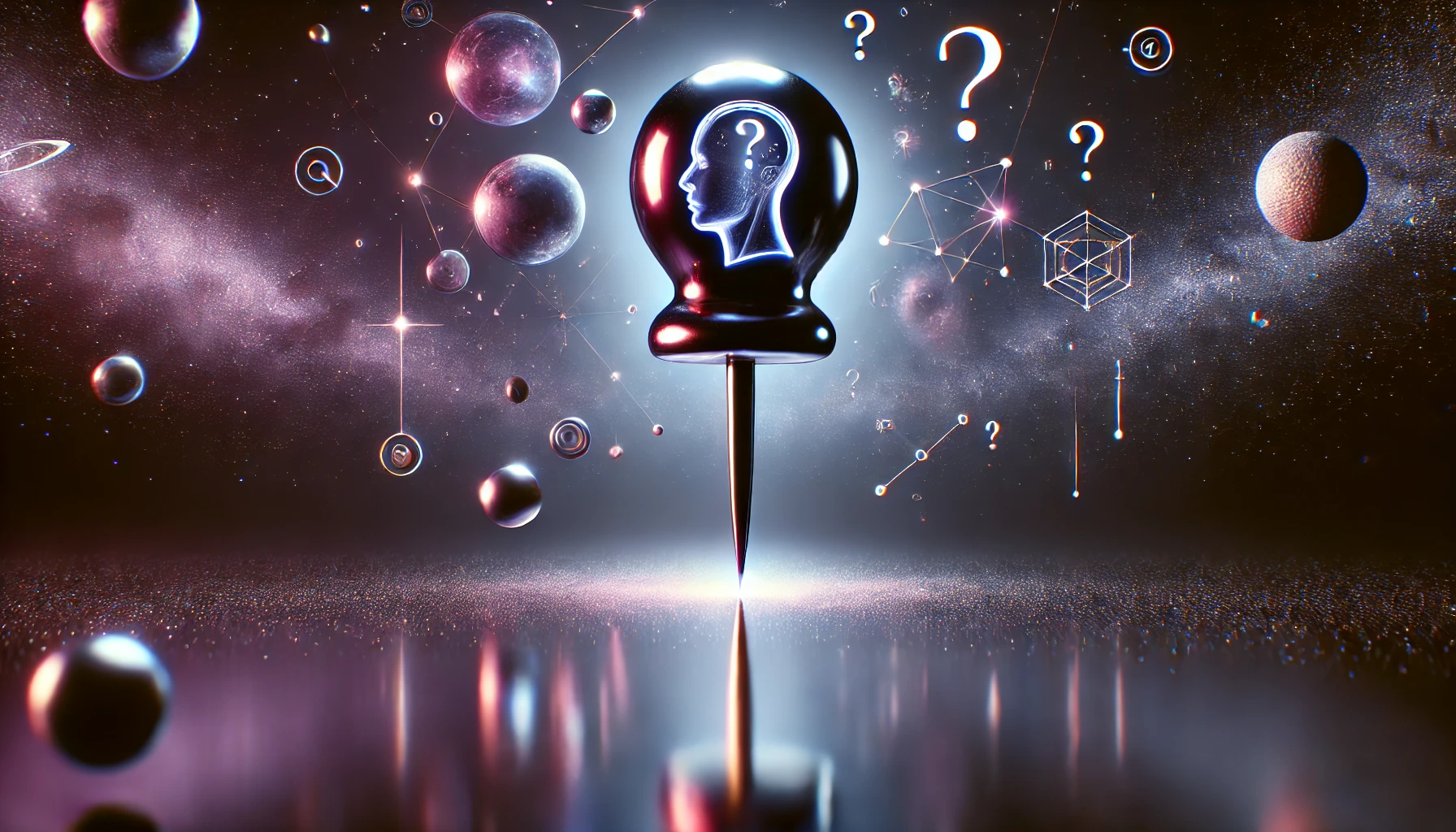
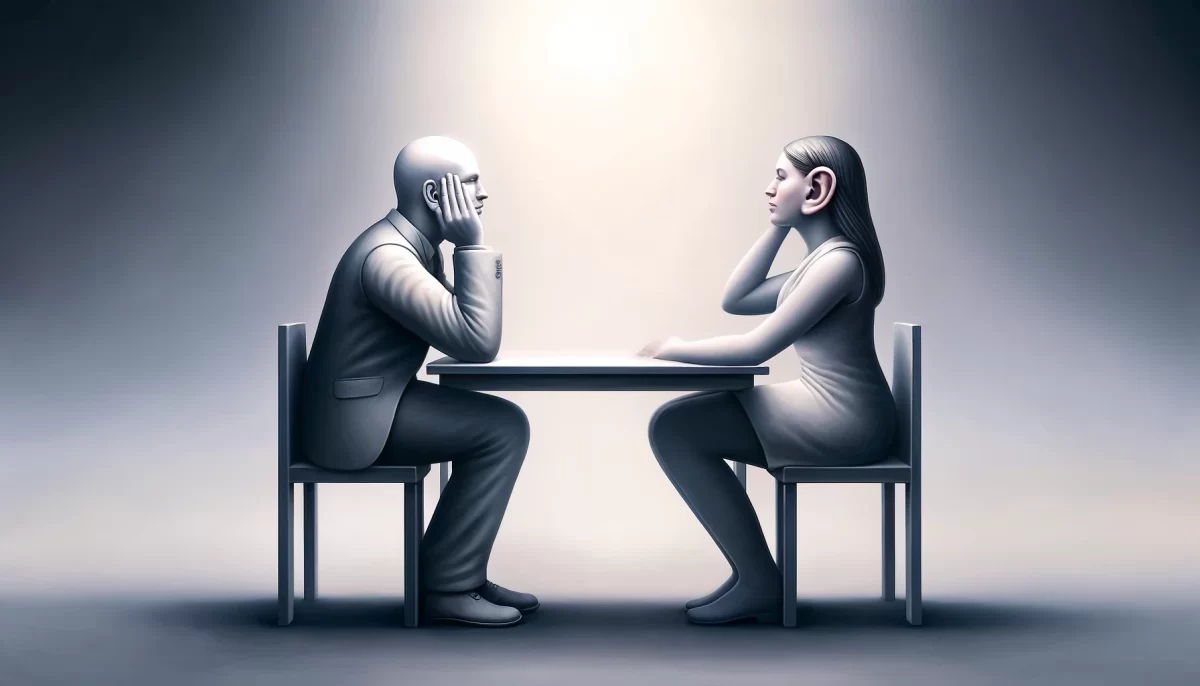
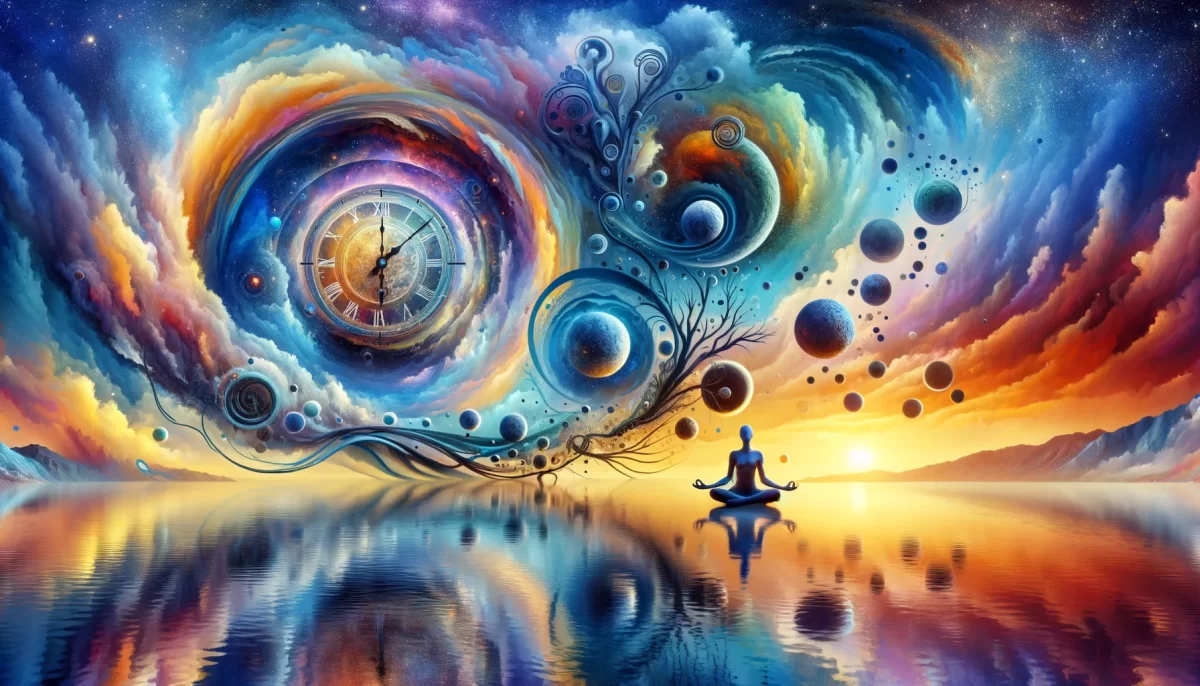

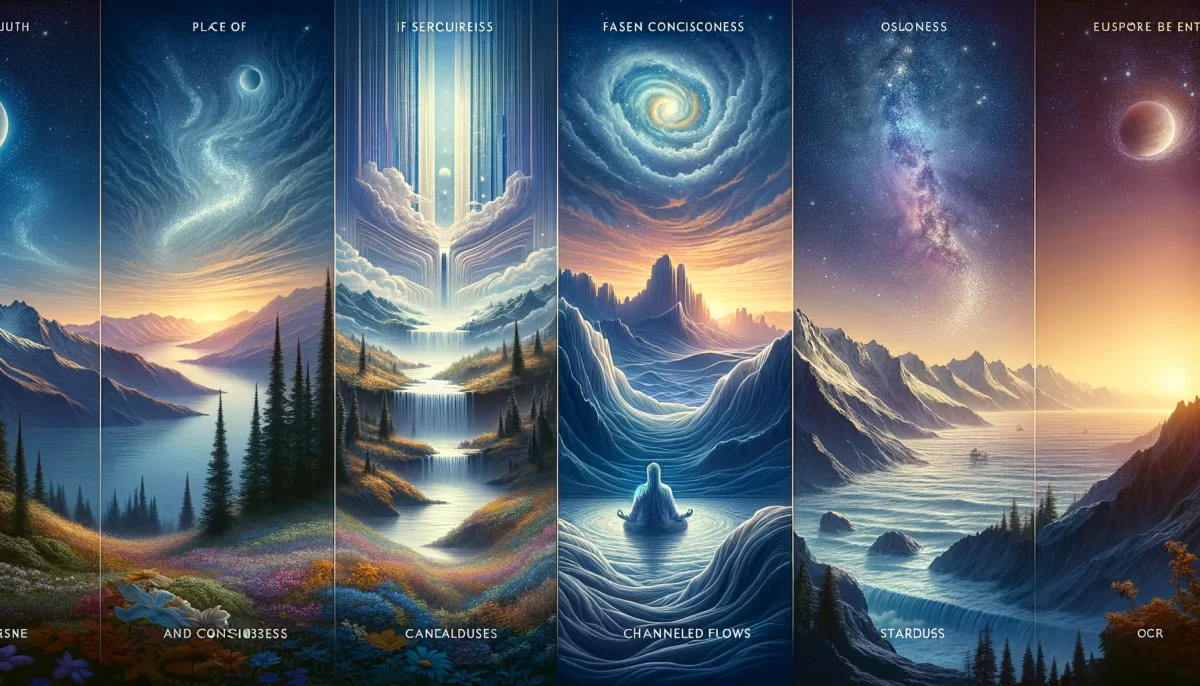
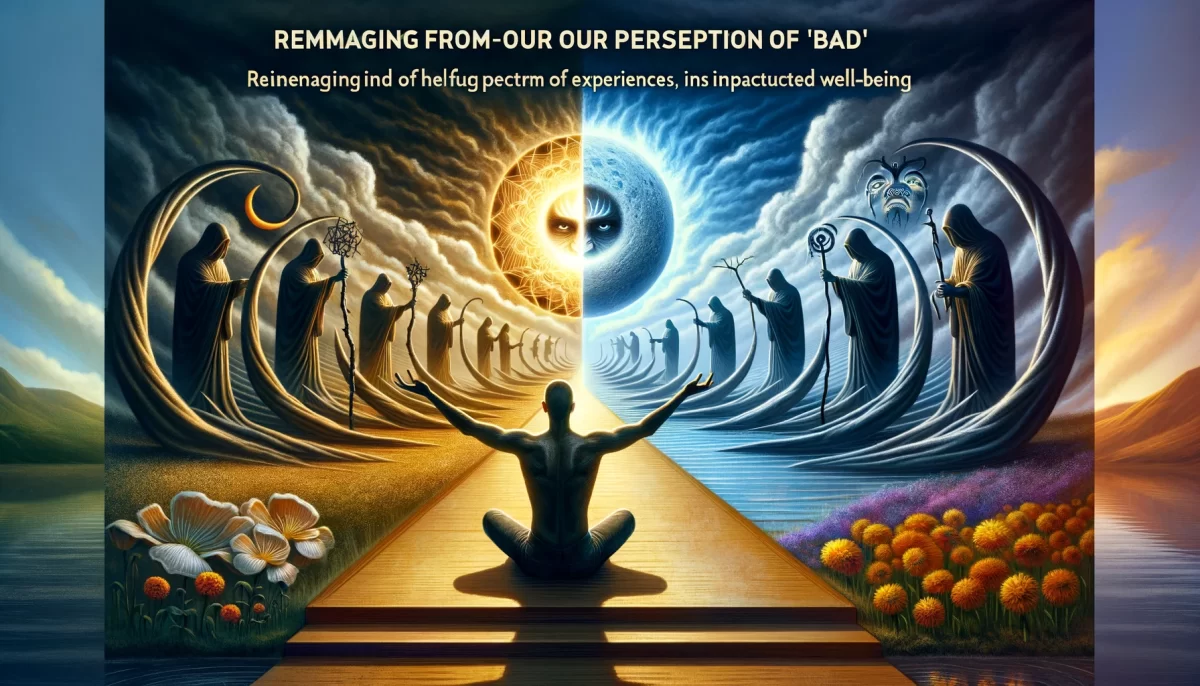
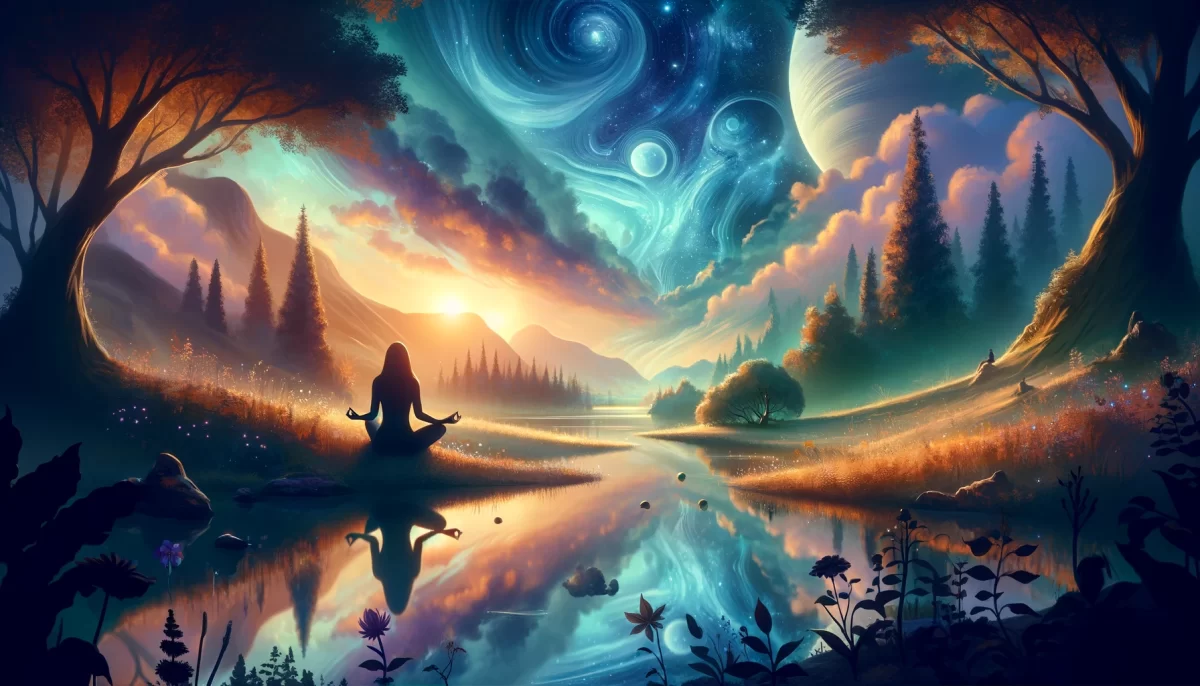
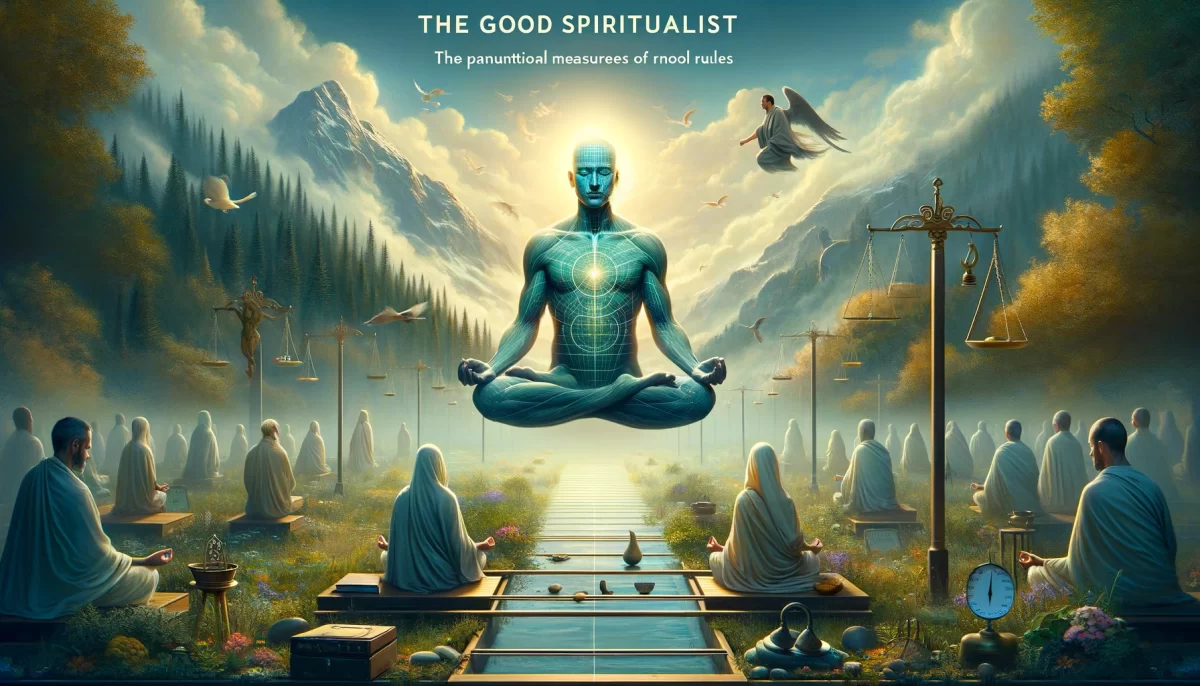
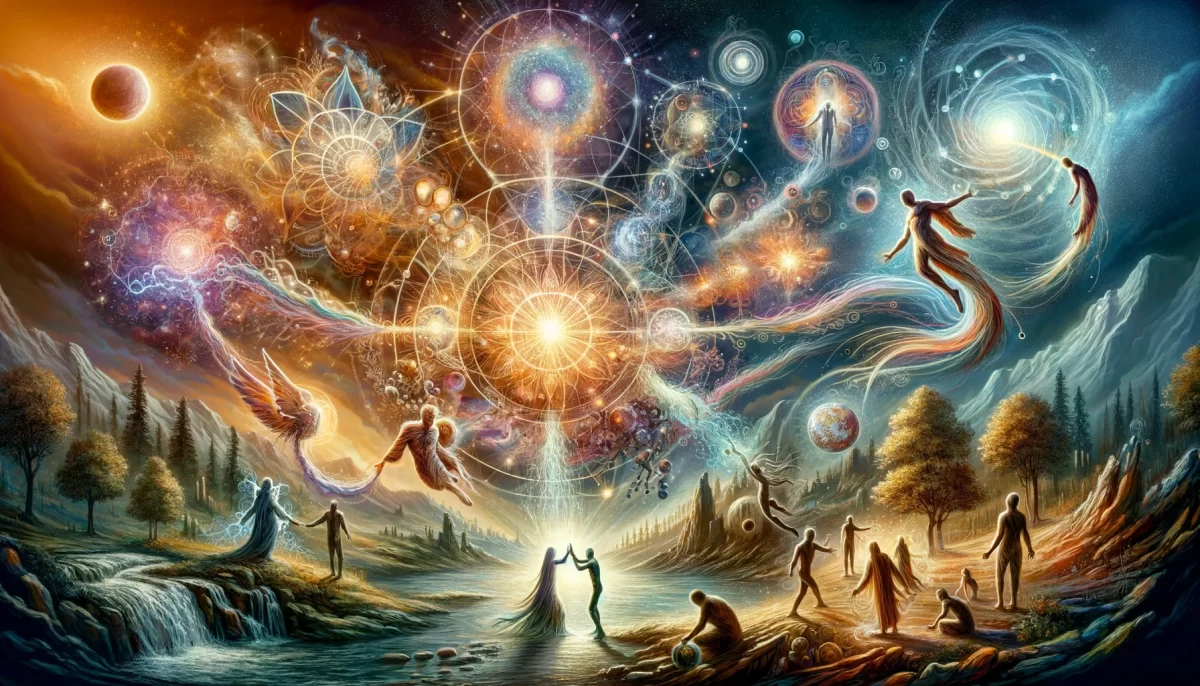

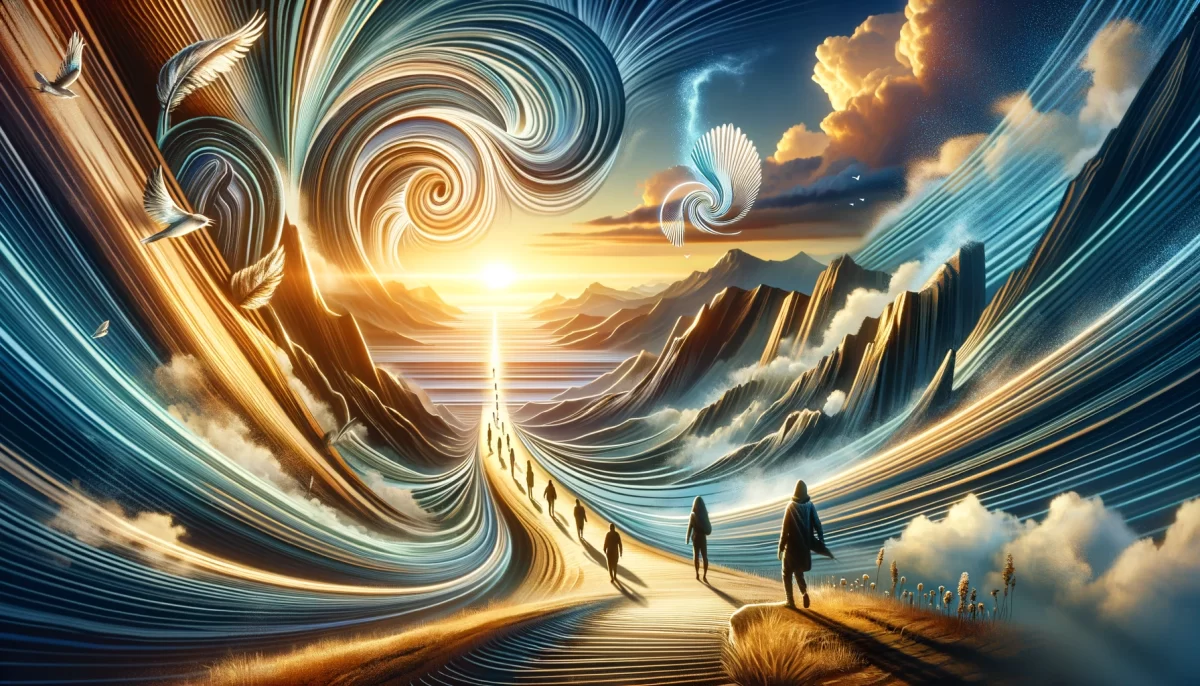
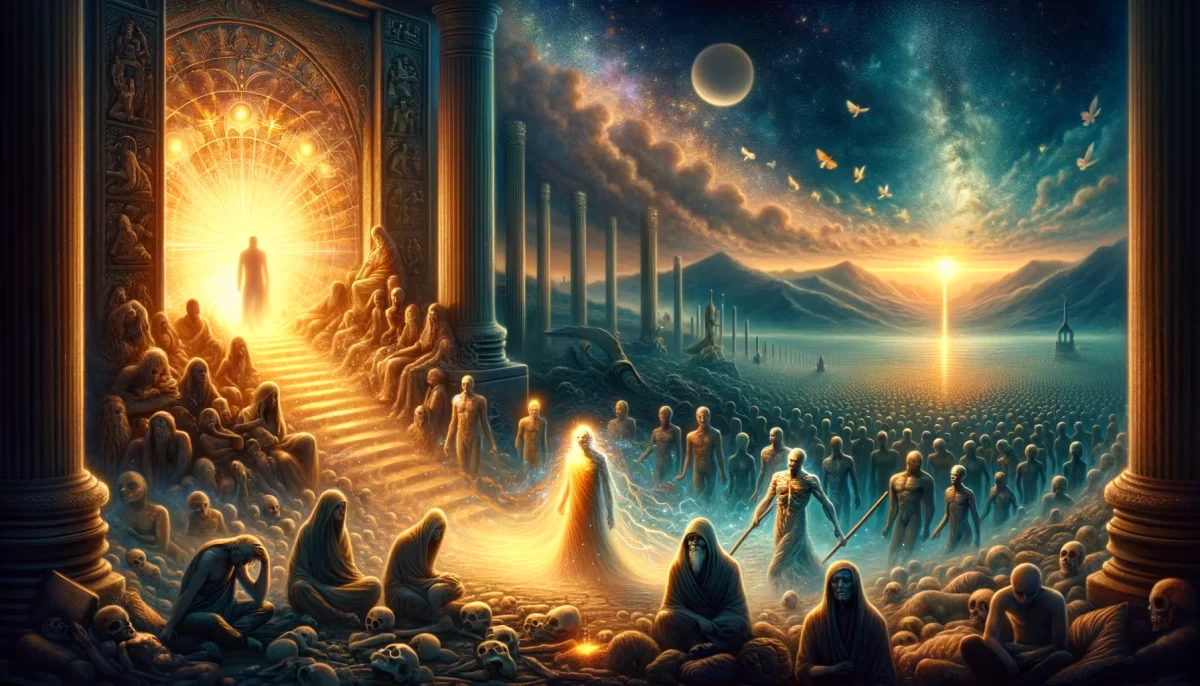
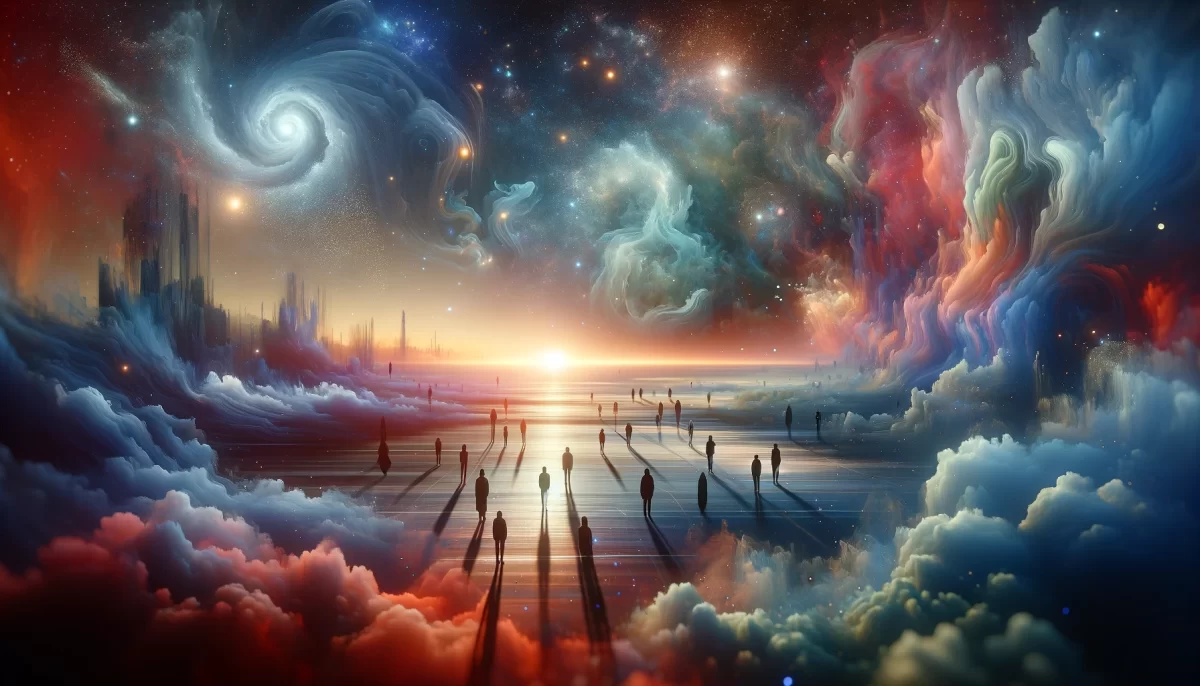
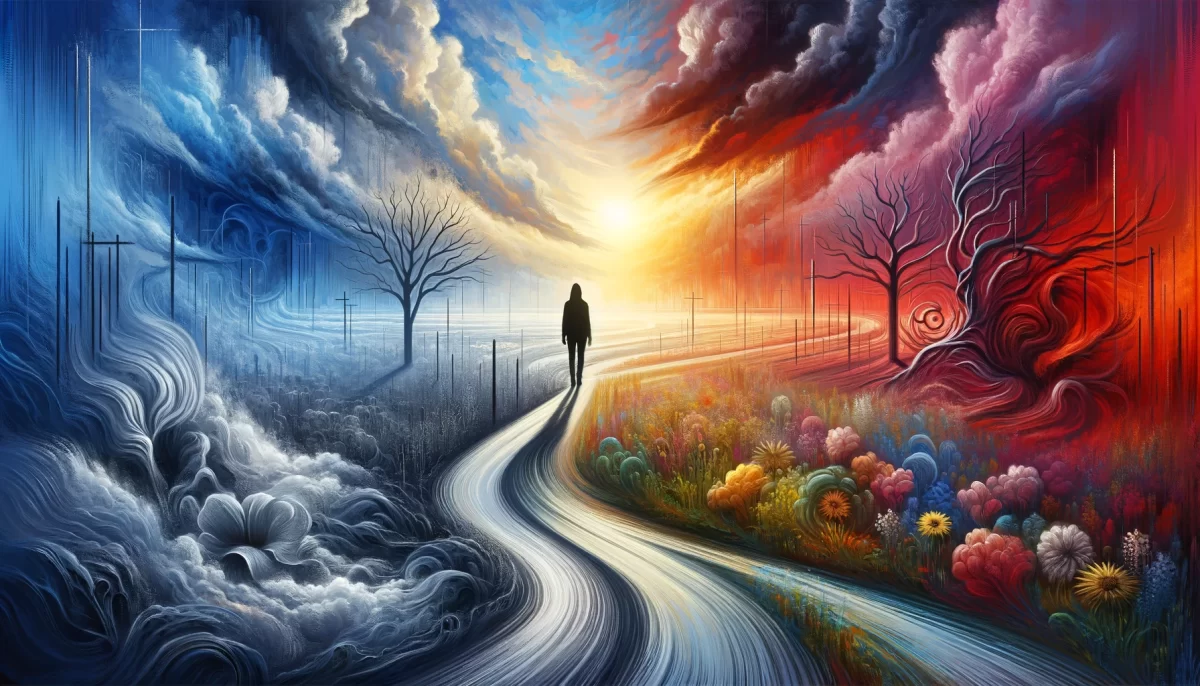
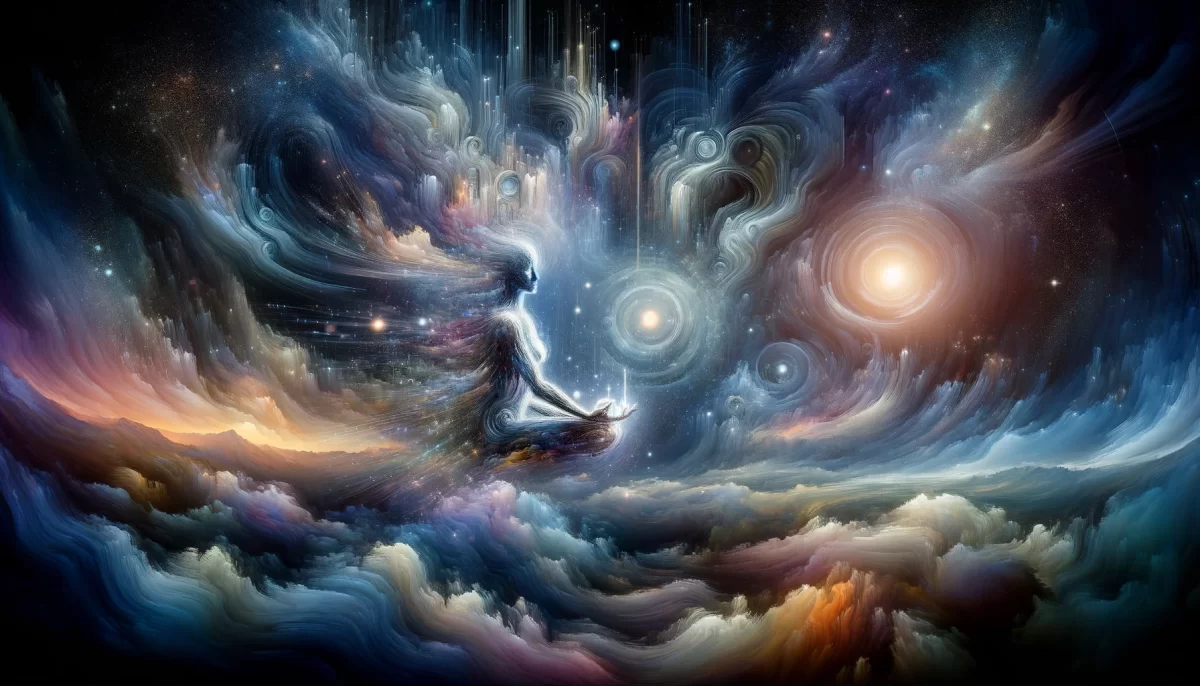
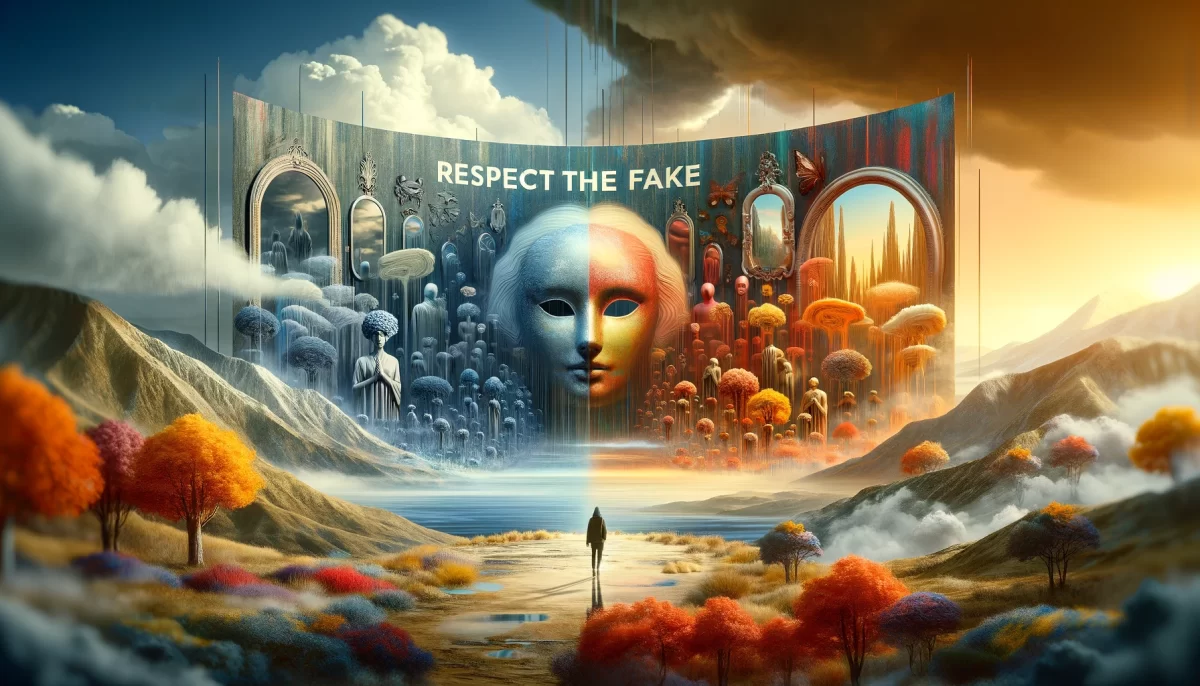
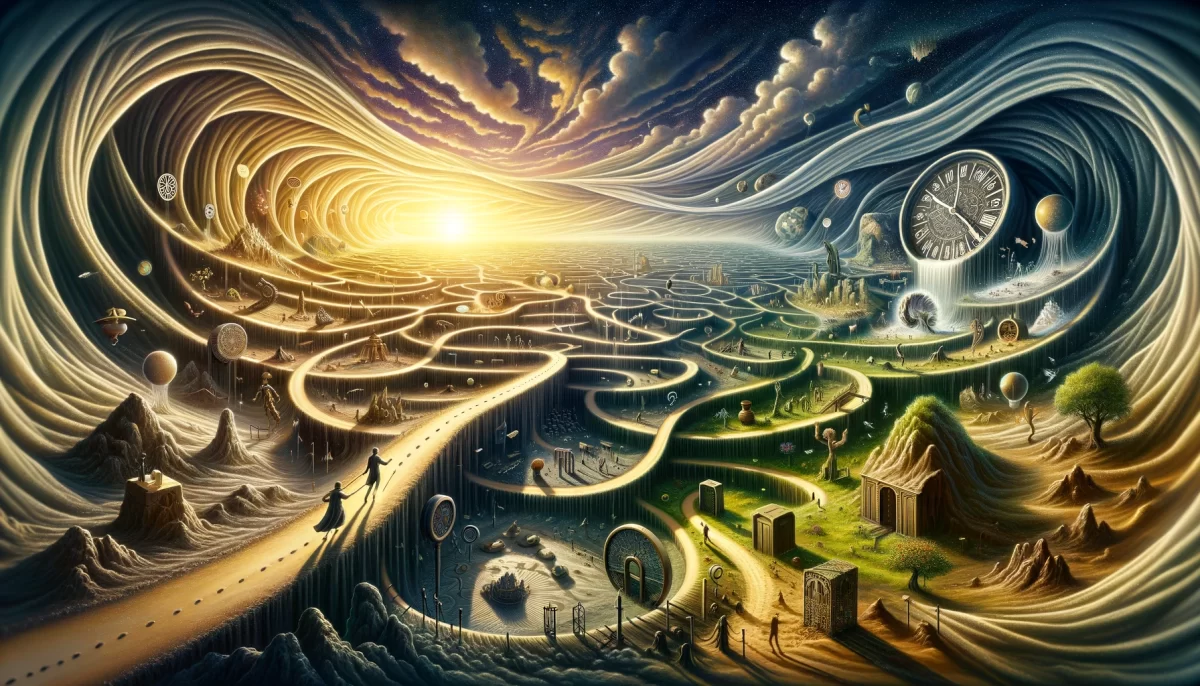
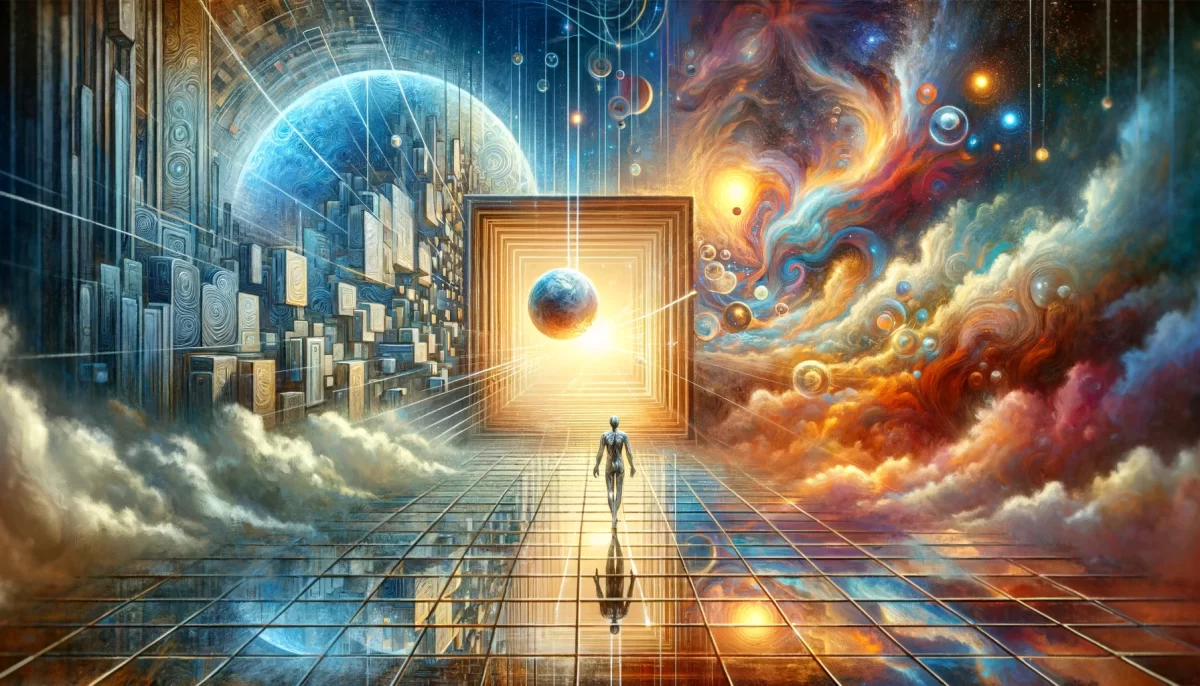
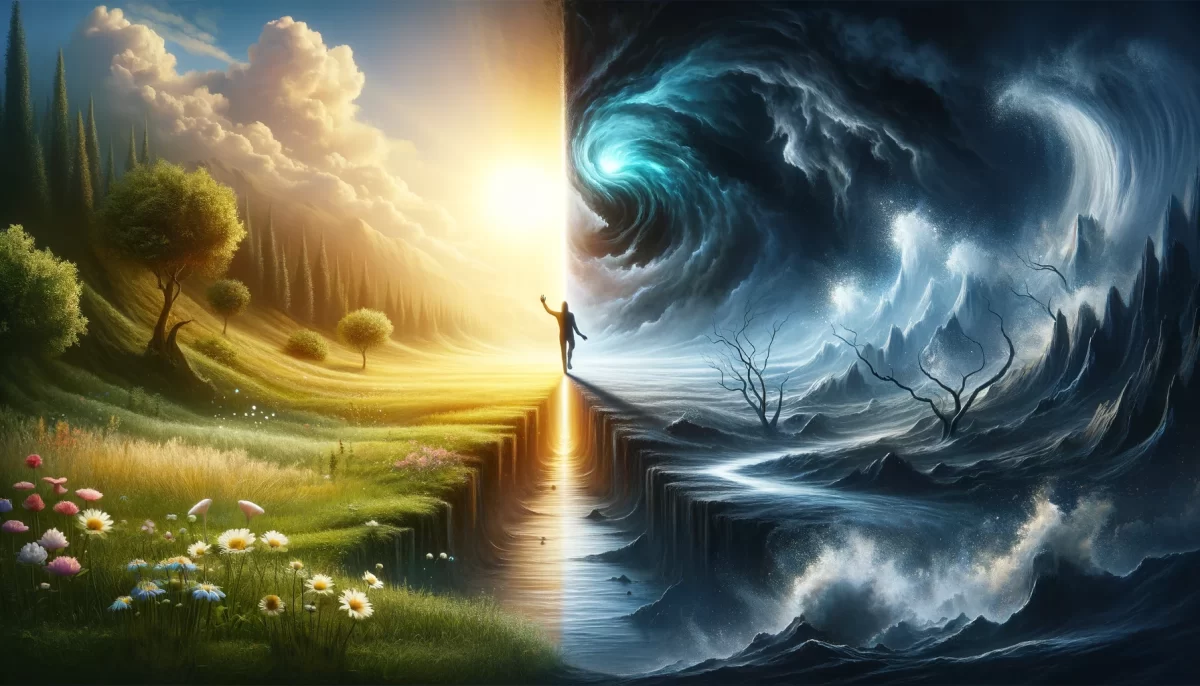
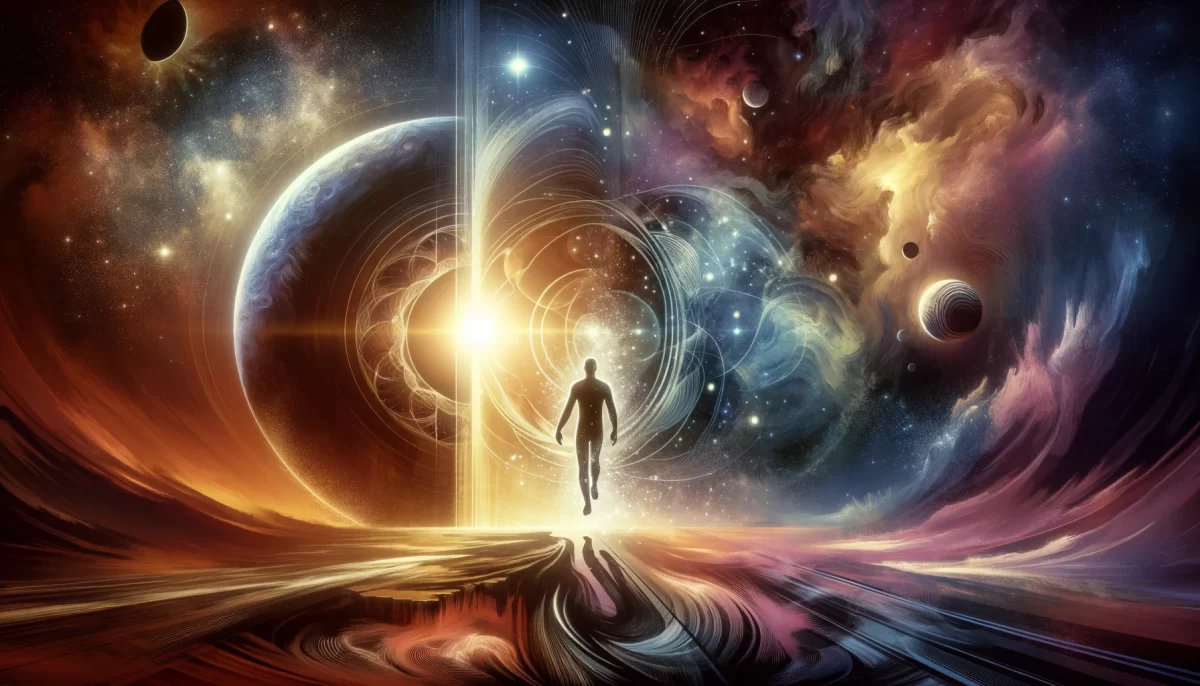
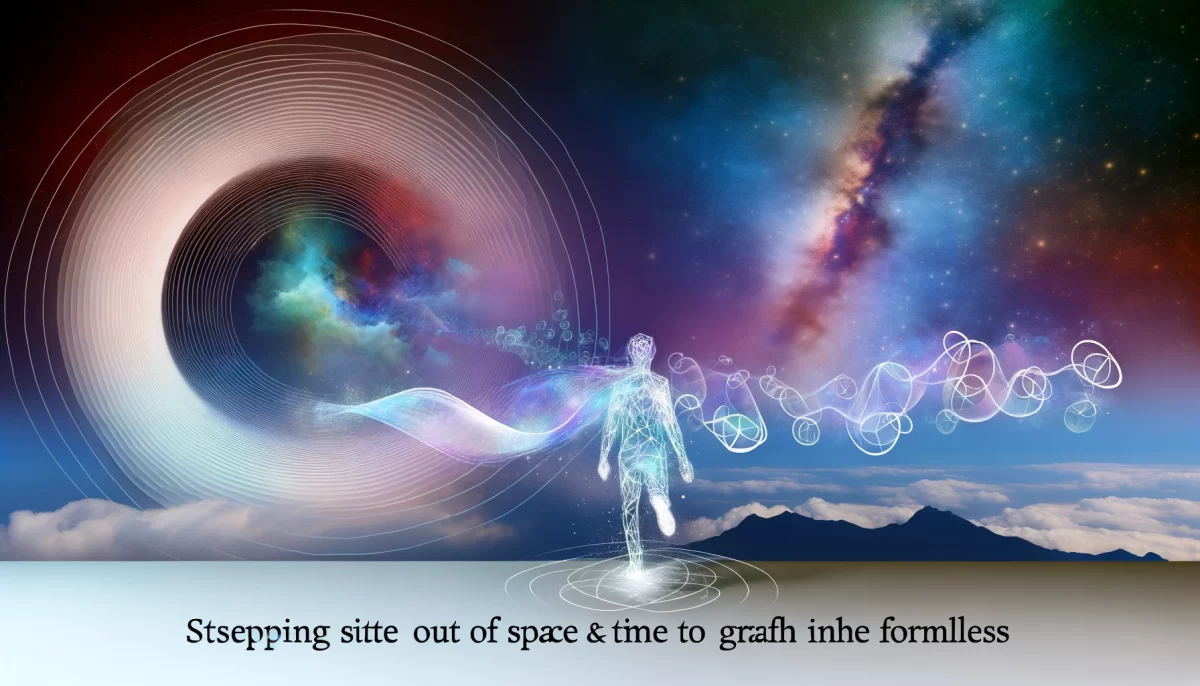
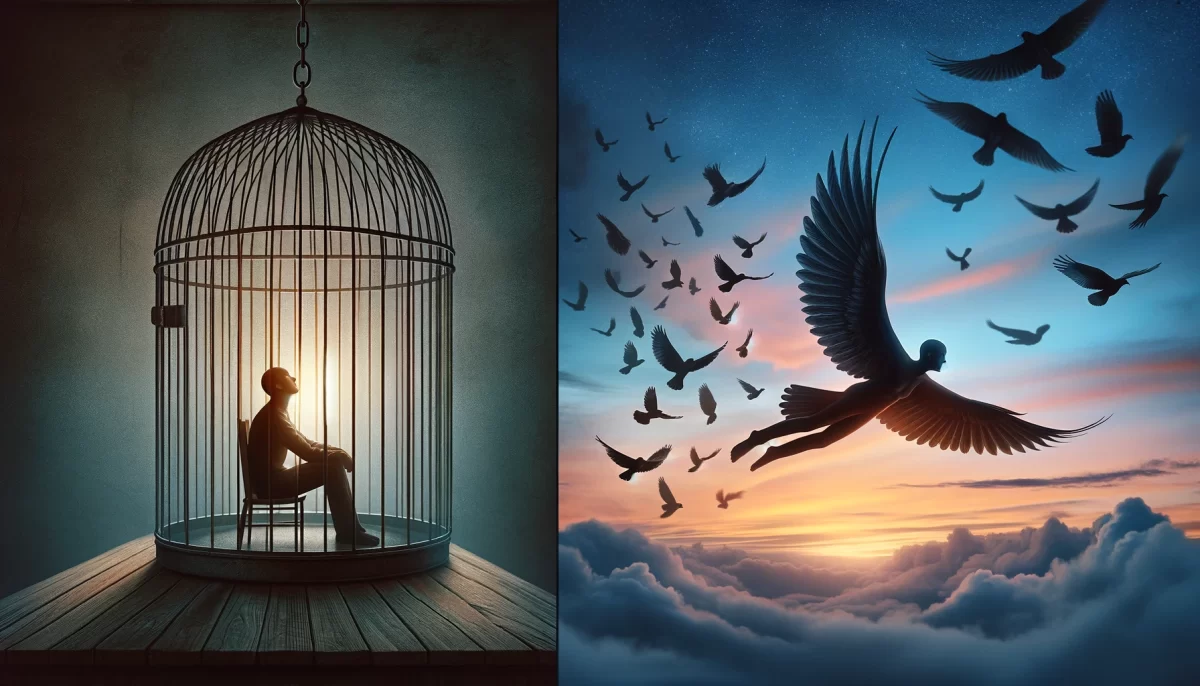
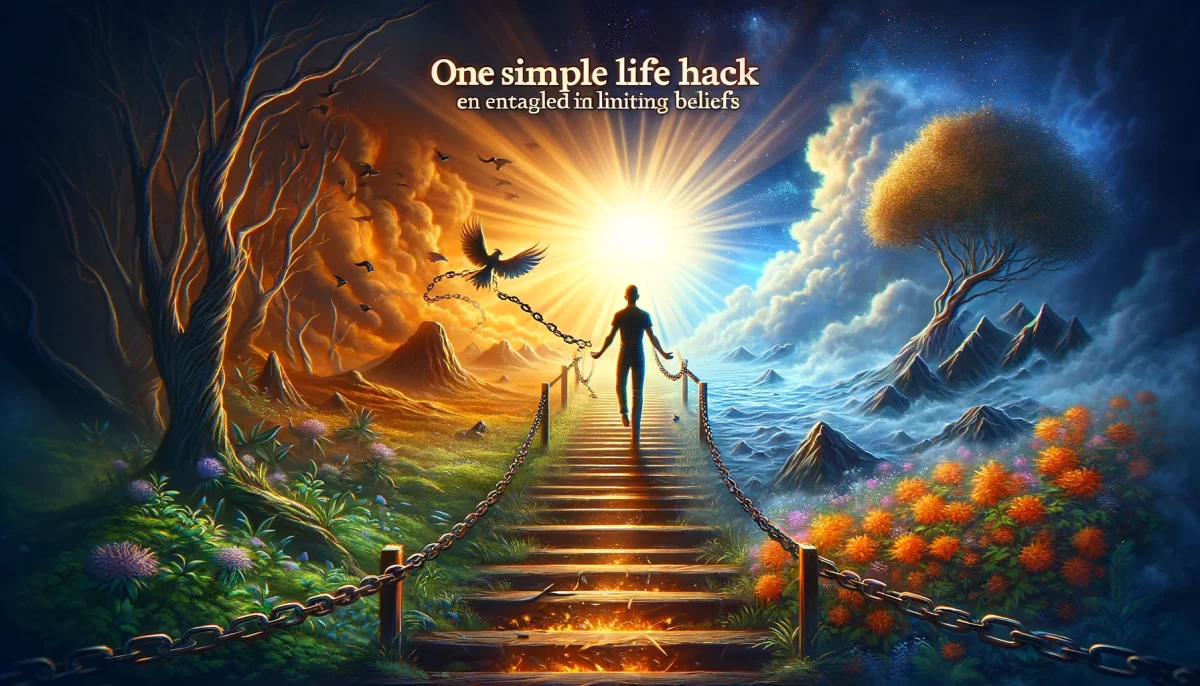
Leave a Reply